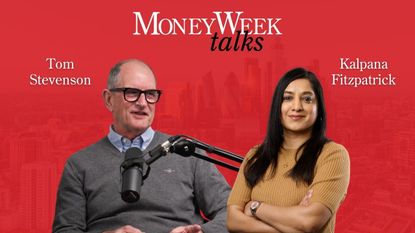Investing
The latest news, updates and opinions on Investments from the expert team here at MoneyWeek
Explore Investing
-

Barings Emerging Europe trust bounces back from Russia woes
Barings Emerging Europe trust has added the Middle East and Africa to its mandate, delivering a strong recovery, says Max King
By Max King Published
-

How a dovish Federal Reserve could affect you
Trump’s pick for the US Federal Reserve is not so much of a yes-man as his rival, but interest rates will still come down quickly, says Cris Sholto Heaton
By Cris Sholto Heaton Published
-

Share tips 2026: this week’s top stock picks
Share tips Share tips 2026: MoneyWeek’s roundup of the top stock picks this week – here’s what the experts think you should buy
By MoneyWeek Last updated
Share tips -

8 of the best houses for sale for around £500,000
The best houses for sale for around £500,000 – from a navigable 1920s Dutch barge on a marina in Isleworth, London, to a basement apartment in Clifton, Bristol
By Natasha Langan Last updated
-

Magnificent Seven earnings: Alphabet stock falls on AI capex increase
Magnificent Seven earnings season continues, with Alphabet’s earnings beat overshadowed by its spending guidance
By Dan McEvoy Last updated
-

ISA fund and trust picks for every type of investor – which could work for you?
Whether you’re an ISA investor seeking reliable returns, looking to add a bit more risk to your portfolio or are new to investing, MoneyWeek asked the experts for funds and investment trusts you could consider in 2026
By Laura Miller Published
-

The most popular fund sectors of 2025 as investor outflows continue
It was another difficult year for fund inflows but there are signs that investors are returning to the financial markets
By Marc Shoffman Published
-

Will mortgage rates fall this year?
The mortgage price war may be over in a blow for borrowers. Whether you're buying a home, remortgaging or you’re a buy-to-let landlord, we look at the outlook for mortgage rates this year and into 2026
By Marc Shoffman Last updated
-

Silver price swings: is it a good investment?
Silver prices soared, sank then (slightly) recovered in late January and early February. Should you invest in silver?
By Dan McEvoy Last updated




